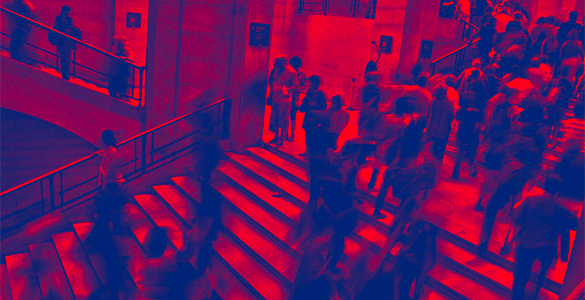SoBigData Summer School 2025: Data, Emotions, and Social Innovation
The SoBigData Summer School 2025, the third edition of the international summer program From Data to Social Innovation, took place from June 22 to 28 in Baratti, on the Tuscan coast. The initiative aimed to train a new generation of data scientists, social scientists, and researchers in the responsible use of data to address ethical, political, and societal challenges. Over the course of an intense week, participants explored the frontiers of computational research—from social media analysis and recommender systems to responsible artificial intelligence and social simulations.
Sunday, June 22, was dedicated to welcoming participants, with an informal introduction and welcome cocktail—an opportunity for students and faculty to get to know each other and establish a friendly and collaborative environment from the outset. On Monday, the spotlight was on the European research infrastructure SoBigData: we began the morning with an introduction on the SoBigData RI by Michela Natilli (CNR-ISTI), followed by a session from Roberta Savella (CNR-ISTI), who provided an overview of the legal panorama of data sharing, outlining key challenges and frameworks. The morning continued with Juan Durán (Delft University of Technology) who offered an epistemological reflection on data science as a social enterprise, while Mark Coté (King's College London) discussed data altruism and the new European policies that promote responsible data sharing for research and the public good.
From Tuesday onward, each morning featured high-level keynote lectures, followed in the afternoons by group work sessions. On Tuesday 24, the day focused on information dynamics. Giulio Rossetti (ISTI-CNR) opened with a talk on simulations and digital twins: “The idea is to create a mirror of reality that is not only reliable, but also useful for making inferences and analyses,” he explained, presenting Y-Social, a simulated environment designed to study complex phenomena such as polarization and disinformation.
Fabiana Zollo (Ca’ Foscari University of Venice) followed with an insightful session on the spread of misinformation and the challenges of scientific communication in polarized environments. Drawing from years of empirical research on platforms like Facebook and YouTube, she showed how emotionally charged narratives—especially those aligned with users’ pre-existing beliefs—can spread more rapidly than evidence-based content. Her work highlighted the fragility of fact-checking strategies when faced with strong identity-driven echo chambers. “Correcting false beliefs is not just a matter of providing accurate information,” she explained, “but also of understanding the cognitive and social mechanisms that lead people to reject it.” She also discussed the importance of pre-emptive education, transparency in moderation, and interdisciplinary cooperation as key elements in building societal resilience to disinformation.
Michele Starnini (Universitat Pompeu Fabra) closed the morning with a detailed analysis of online radicalization, echo chambers, and platform migration. “Events like the Capitol Hill attack paradoxically reduced the global spread of vaccine misinformation,” he noted, revealing the interconnections among distant-seeming dynamics.
Wednesday 25 shifted the focus toward political and emotional dynamics. János Kertész (Central European University) guided participants through theoretical models of opinion dynamics. “Society as a whole is a complex system,” he remarked, showing how models like the voter model and bounded confidence model can help explain the increasing polarization observed in countries like the U.S. Later, Paolo Gerbaudo (Complutense University of Madrid) introduced the concept of political sentiment as a collectively constructed form of public opinion on social platforms: “Today, winning hearts is just as important as convincing minds.” To conclude the day, Salvatore Citraro (CNR-ISTI) explored the detection of echo chambers in social networks, emphasizing the importance of meso-scale analysis in understanding how polarized communities form and evolve.
On Thursday 26, the focus shifted to artificial intelligence and human-AI interaction. Daniele Quercia (Nokia Bell Labs / Polytechnic University of Turin) opened with a comprehensive talk on Responsible AI, presenting an operational framework built around three key phases: Design, Deploy, and Monitor. His approach goes beyond traditional compliance checklists, offering adaptive tools—such as AI Design and Risk RAG—that support developers in building responsible systems. “We shouldn’t just follow rigid rules—we need tools that truly support developers in making informed and responsible decisions,” he emphasized.
Salvatore Rinzivillo (CNR-ISTI) followed with a lecture on explainable AI interfaces, showing how interface design can deeply impact the interpretability of machine learning systems: “The same explanation can have different effects on experts and non-experts,” he noted, advocating for a user-centred design approach.
Luca Pappalardo (CNR-ISTI) closed the morning by addressing the co-evolution of humans and AI. Drawing from empirical studies across platforms—from social networks to urban navigation—he showed how recommender systems create feedback loops that shape behaviour at scale. “Recommender systems increase individual engagement and personal diversity, but reduce collective diversity,” he warned, highlighting a paradox observed in contexts ranging from e-commerce to mobility.
Friday 27 concluded the keynote series with a transdisciplinary contribution by Jussara Marques de Almeida (Universidade Federal de Minas Gerais), who explored the architecture of virality. She illustrated how curiosity, affiliation, and strategy contribute to making content viral on social media. Her talk offered insights into both organized information campaigns and spontaneous dynamics, emphasizing how platform design and user behavior interact in the spread of online content.
The week culminated with the final student project presentations. Each group shared their research and solutions, receiving feedback from faculty members and sparking lively discussion. The quality and originality of the projects confirmed the success of the format. Informal moments—including a visit to the archaeological site of Populonia, a tour of Petra Winery, and evening gatherings—helped strengthen a vibrant sense of community beyond the academic setting.
The SoBigData Summer School continues to prove itself as a uniquely formative experience: a laboratory of ideas, methods, and human connections, where data science meets social responsibility.
Written by SoBigData Communication Officers.

